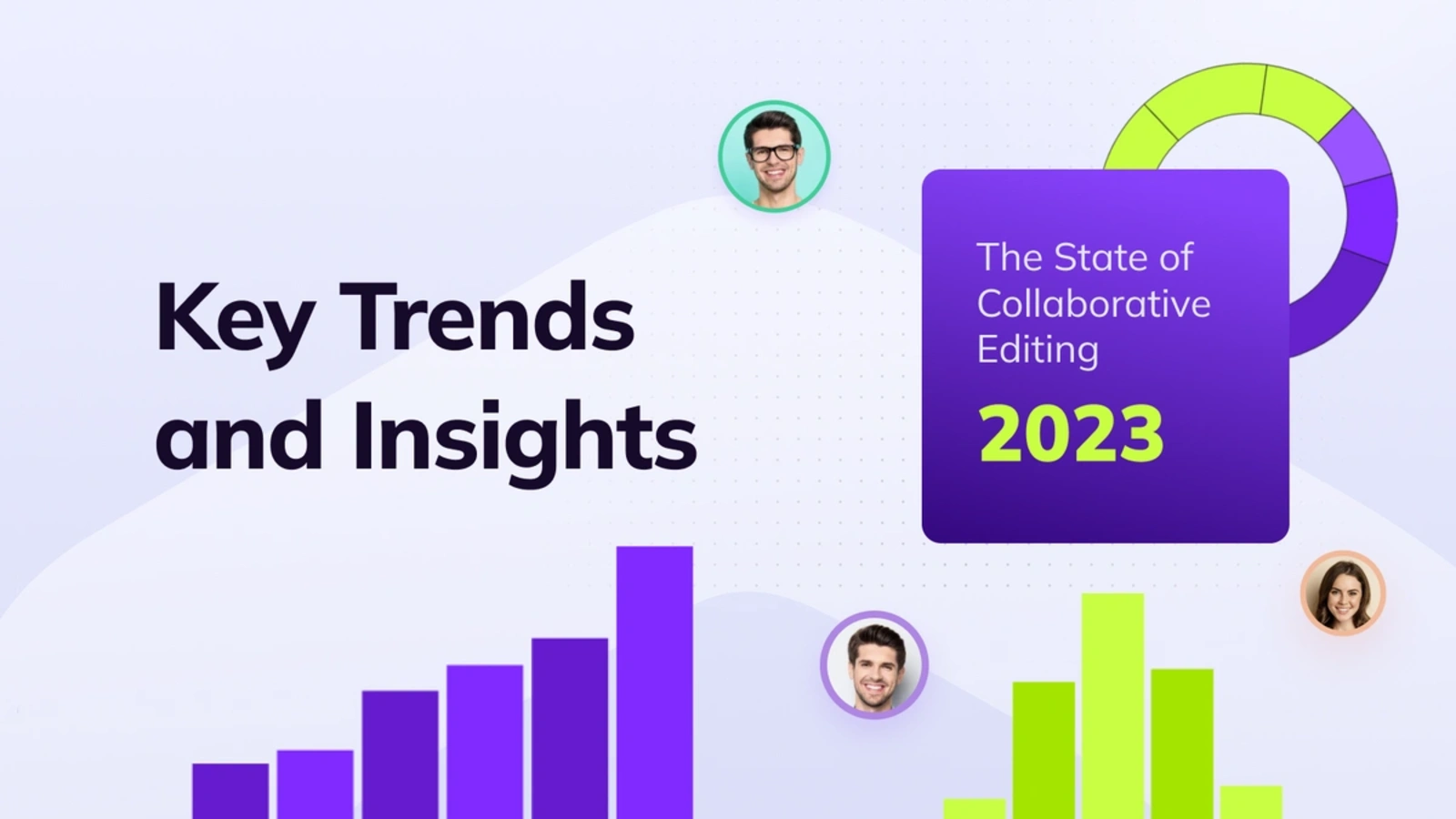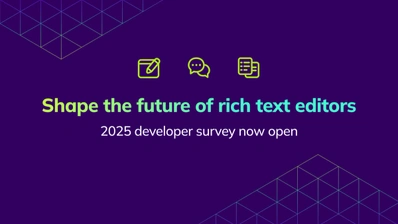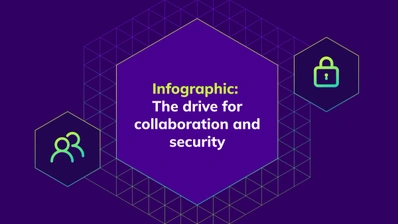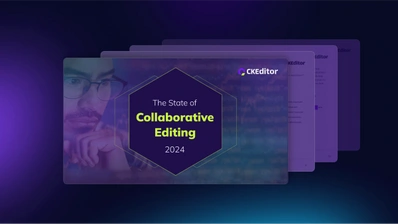Collaboration trends 2023: Insights from a developers survey

It’s here: our very first State of Collaborative Editing Report. What did we ask 1,100+ tech professionals? They shared their take on what makes a good rich text editor, what the future holds for WYSIWYG editors, the impact of AI, and of course, the importance of collaboration.
Like anyone who works with rich text editors (RTEs), we know how adaptable and variable they can be. The concept means different things to different people – one person’s killer application is another’s edge case. So, to get a full picture of where rich text editors are now and where they’re going, we opened an annual global survey of developers, product managers, data analysts and more.
Participants talked about collaboration trends, their current use cases for rich text editors, and what their priorities are for the future. Amongst the 1,100+ people who took the survey, we also identified a small, yet seasoned, group of rich text editor ‘power’ users, with distinct needs and a different perspective.
Get more insights
In focus: collaboration is the biggest trend
Regardless of whether they were pros or beginners, one thing people agreed on was the importance of collaboration.
Although rich text editors are one of the most commonly used components in platforms as diverse as social media apps and corporate intranets, for the most part they haven’t kept up with new ways of working. While companies have spent the past three years embracing remote work and asynchronous communication, rich text editors often still lack the basic collaboration features seen in apps like Google Docs. Clearly, something has to change, and the survey results show just how soon that change is coming.
Read on for the major collaboration trends and insights in our State of Collaborative Editing Report.
6 key collaboration technology trends for 2023
1. Collaboration is a must-have feature – and it’s coming soon
A full 60% of people think collaboration features are important for their apps. Just how important are they? About two-thirds of people are aiming to introduce collaborative features by the end of the year, and over half are seeing serious interest in collaboration from their users.
2. AI will change the way we use RTEs
AI dominated the conversation about which tools and technology will shape the future of rich text editors. People expect to see AI-powered features – including speech-to-text, content creation, predictive text and more – added to rich text editors within the next two years.
3. Power users are looking beyond AI
Amongst our subset of more experienced users, predictions and priorities are different from the mainstream. Apart from collaboration, power users are looking for more advanced features, like deeper customization, integration with other frameworks, and the ability to embed complex content types.
4. Rich text editors are the backbone of developers’ apps
Three-quarters of people highlighted the importance of their chosen rich text editor for their product. Professionals know the RTE is one of the main ways their users interact with their app, so choosing the right one is crucial.
5. But developers won’t hesitate to switch to a new platform
In a sobering result, 50% of people are expecting to change to a new rich text editor in the next two years. Considering how important collaboration features are for most people – and how comparatively rare they are in mainstream rich text editors – maybe it’s not such a surprise people are looking to switch.
6. People want a sweet spot between customization and simplicity
The most important features for rich text editors are performance, security and privacy, customization, and ease of implementation. These four key areas don’t always go hand-in-hand, so it’s important to focus on just one while neglecting the others.
Get more insights
What is the State of Collaborative Editing survey?
It’s an annual survey of tech professionals around the world who work with rich text editors. The goal is to take the temperature of the rich text editor industry to find out about the latest collaboration trends.
The survey ran from April 5 to June 30, 2023 and was open to people across any industry, location and role who have experience using rich text editors – not only CKEditor customers. In total, we collected more than 1,100 responses, with a 95% confidence level and a 3% margin of error. Questions ranged from job title and industry to preferred programming languages, rich text editor popularity and use cases, plus predictions for the future of RTEs.
If you’d like to take part in next year’s survey, make sure to sign up to our newsletter below, to be the first to know when it goes live.
In the meantime, you can read the full 2023 State of Collaborative Editing report for free.


